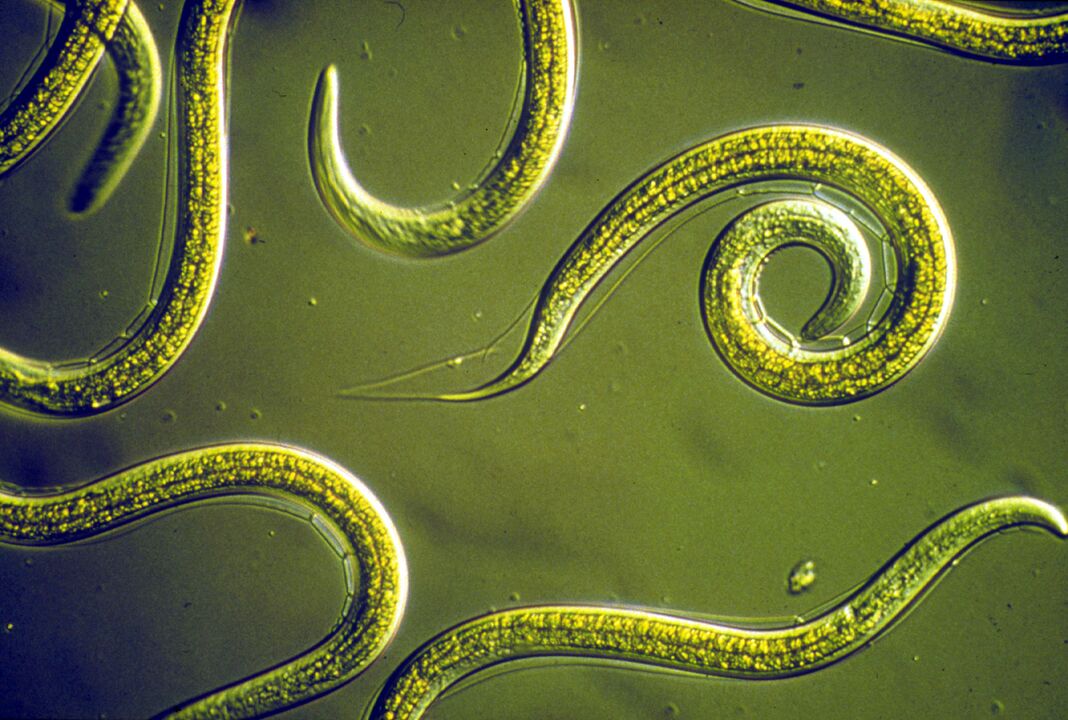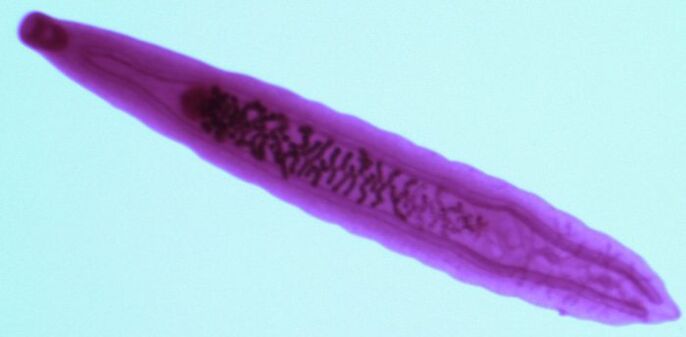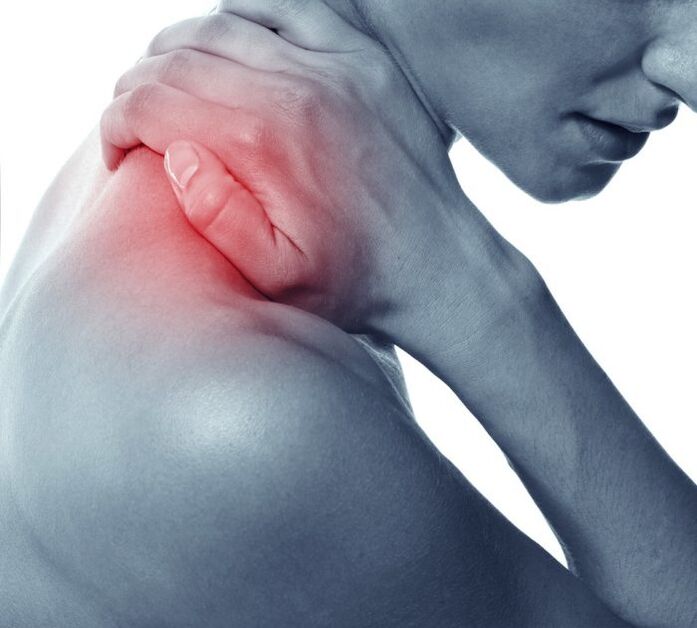Anyone can get worms. Toddlers - kindergarten, adults - for other reasons. Despite taking all precautions, you should know the signs of heartworm disease in humans to recognize the disease promptly and start treatment. What are worms, where do they settle and how do they manifest - we will consider in more detail.
What organs can be affected by worms?

There are two types of invasion: the abdominal area and the tissue area. Depending on the species, the habitat is also divided:
- Worms have colonized cavities in the small and large intestines. In particular, the first segments of the small intestine are infected with tapeworms, hookworms, and roundworms. The lower part of the small intestine is inhabited by dwarf tapeworms and pinworms. The large intestine often becomes the home of flagellates.
- Tissue helminths affect organs of any kind: liver, brain, lymph nodes, biliary tract.
Important! It is not possible to identify signs of the presence of worms in a patient at the early stages of the development of an invasion. While the number of worms is small, the toxins and waste products are within normal limits, the body can cope with the invasion on its own. The appearance of characteristic or acute symptoms indicates a significant increase in the number of helminthic invasions: the maturation of individuals and their dynamic development.
Types of necklaces

Identifying the signs of worms in adults, you should understand what type of infestation we are referring to:
- Vlasoglavy. The chain is named for the filamentous body with thickness at the back end. The life cycle of the parasite is direct. Habitat - tropics, subtropics. The chains are located in the cecum so it is difficult to engrave.
- Nematode. A suborder of roundworms that live in nature and the human body. The most famous representatives: roundworms, pinworms.
- Fluke. Flat tapeworm. They are a huge threat to the body of the carrier, as they can settle in any organ or system. Representative: schistosomiasis, helminths.
- Pork tapeworm (tapeworm). Tapeworms are hermaphrodites. There are strong hooks on the head to attach to the wall, they can affect the brain, intestines, liver, eyes, muscles. Consequences of not treating: paralysis, carrier death.
All types of worms are found in the human body. When suffering from roundworm, roundworm, filariasis, the patient has a lack of nutrients, the intestines cannot absorb food residues normally. Consequences of penetration: metabolic disturbances, neurological reactions.
Some information about the ways of infection:
- Roundworms - vegetables, fruits, unwashed hands;
- Raw or lightly salted fish, caviar - diphyllobothriasis;
- Pinworms - method of contact - household. The developmental period is up to 60 days, after which there is a period of chronic infiltration, which is characterized by a decrease in immunity and a high incidence of infectious diseases, exacerbations of chronic processes.
Signs to identify worms in humans
The general symptoms of helminthiasis in adults depend on the location of the worm. The main danger is caused by parasites settling in vital organs. Worms appear, potential symptoms: weakness, cough. And although for a full diagnosis, an examination is necessary. However, there are some signs that you can identify: where the worms are and whether they exist or not.
Brain

Usually, there are no obvious symptoms, but if the worms live in the human brain, the patient may experience:
- persistent bouts of nausea;
- frequent vomiting;
- Severe weakness;
- coma of consciousness;
- reduced vision, hearing;
- fluctuations in body temperature for no apparent reason;
- epilepsy.
Reality! Usually, parasites in the brain are found only after an autopsy.
In the body

Hundreds of known species of parasites can reside in the patient's body. It is difficult to determine the presence of worms in the body of an adult. Symptoms vary according to the region of localization: in the heart, liver, lungs, subcutaneously. Common signs of worms in adults:
- muscle and joint pain;
- deterioration of the skin;
- weight jump: reduce or put;
- severe persistent fatigue;
- reduced immunity immediately.
Reality! Some types of worms have the ability to crawl from the anus to the perineum, penetrate through the bloodstream into other organs, appear in the abdominal cavity and affect the nose and ears.
In the intestines

The most common worms in humans, the symptoms are more obvious, can be in the large intestine and small intestine. Infection occurs through the mouth, by contact. The period of larval development and adulthood from eggs is carried out in the intestinal mucosa. Parasites take nutrients for themselves, preventing their absorption through the intestinal tract. It is for this reason that there are intestinal problems that cause helminthiasis in adults. Symptom:
- frequently swollen abdomen;
- broken stools;
- flatulence appears;
- change in body weight;
- constantly and strongly want to eat.
Of course, with worms, the symptoms may be different, overgrowing with the characteristic signs of gastropathy, if the patient has one. That is why accurate diagnostic measures are so important. Only a specialist will determine exactly: the location of the worm, the type and dynamics of the development of the invasion.
Signs of helminthiasis depend on the type of parasite
Symptoms of worms in adults can be different from childhood symptoms. Strong immunity repels penetration, but the child has no such feature. Knowing the signs of the presence of worms in a person, it is easier to understand the cause of the disease, and when an infection is suspected for the first time, consult a doctor. An infectious disease specialist, parasitologist, helminthologist - an expert on the required record will quickly find out where worms live in the human body and how to get rid of them.
Each parasite causes the appearance of its own symptoms:
- from tapeworms there are intestinal problems: loss of appetite, sleep disturbances, flatulence;
- round words - cough, bloating, gas formation, loss of appetite.
Important! Roundworm or roundworm is up to 40 cm in length and is able to move easily along the intestinal wall, living in the lungs and liver. This is a very dangerous invasion that needs to be handled.
Regardless of whether tapeworms or roundworms have settled in the human body, they need to be eliminated. Even in small amounts, the infestation can cause serious harm to the body, and in large quantities, the parasites poison the host and often lead to the death of the patient. Knowing where the worms live, don't be in a hurry to write down a regular stomach full of indigestion, perhaps this is a sign of helminth disease, which means it's time to see a doctor.






































